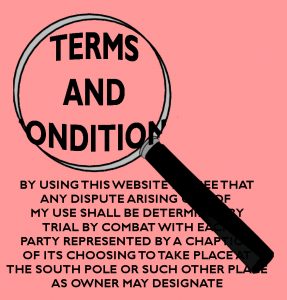
 In the last two years the federal courts have had a number of opportunities to find that Title III claims under the ADA are not arbitrable and have declined the invitation. That doesn’t mean these cases are in fact going to arbitration. In every case I found the arbitration agreement was found to be unenforceable on state law grounds, leaving open the possibility of a public policy argument. Nonetheless, I think that a properly written and implemented arbitration clause can force a Title III case into arbitration and give defendants a chance to avoid much of the unnecessary cost of litigation. Here’s why.
In the last two years the federal courts have had a number of opportunities to find that Title III claims under the ADA are not arbitrable and have declined the invitation. That doesn’t mean these cases are in fact going to arbitration. In every case I found the arbitration agreement was found to be unenforceable on state law grounds, leaving open the possibility of a public policy argument. Nonetheless, I think that a properly written and implemented arbitration clause can force a Title III case into arbitration and give defendants a chance to avoid much of the unnecessary cost of litigation. Here’s why.
The starting point in a discussion of arbitration for civil rights statutes has to be Gilmer v. Interstate/Johnson Lane Corp., 500 U.S. 20, 111 S.Ct. 1647 (1991). In Gilmer the Supreme Court found that claims under the Age Discrimination in Employment Act could be made subject to a valid arbitration agreement, rejecting claims that it was somehow inconsistent with public policy. A few months later Congress passed the Civil Rights Act of 1991, in which, among other things, it affirmed that More

